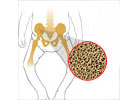A cereal and health correlation study confirms that fortified rice reduces deficiency of iron in subjects.
A cereal and health correlation study confirms that fortified rice reduces deficiency of iron in subjects. This has become possible by techniques of plant breeding that have incorporated traits and made rice that has higher levels of iron in it.
The study was conducted by Philippine and American scientists. This study is important as iron deficiency is a major health problem around the world. It is one of the public health problem affecting nearly 2 billion people worldwide.The study appears in the journal of nutrition. The lead researchers are Dr. Jere Haas from the Division of Nutritional Sciences at Cornell University, Dr. John Beard and Dr. Laura E. Murray-Kolb from the Department of Nutritional Sciences at Pennsylvania State University, Prof. Angelita del Mundo and Prof. Angelina Felix from the University of the Philippines Los Baños, and Dr. Glenn Gregorio from the International Rice Research Institute (IRRI).
The sample size was religious sisters in ten convents in the Philippines. These subjects were assigned nutritionally enhanced rice in their diets. After 9 months, results showed a significantly higher level of total body iron in the blood of subjects.
In the words of Dr. Robert Zeigler, director general of IRRI, “This study documents a major breakthrough in the battle to prevent micronutrient malnutrition,” These results are especially important for rice-eating regions of the world where more than 3 billion of the world's poor and undernourished live.”
The development and cultivation of the talked variety of rice (known technically as IR68144-3B-2-2-3) was done at IRRI. This was then tested and evaluated by an international team of researchers from Cornell University, Pennsylvania State University, the University of the Philippines Los Baños and IRRI.
“We view this study as a ‘proof of concept,'” said Zeigler. “We now know that, if plants are bred with higher levels of iron and other micronutrients, they will improve the nutritional status of people who consume them. This has dramatic implications.”
Advertisement
“In the past, we relied on supplements and fortification to overcome vitamin and mineral deficiencies,” said Howarth Bouis, director of HarvestPlus. “Now we know that bio fortification also works, giving us an additional tool in this crucial battle.”
Advertisement
A powerful statement by Zeigler summarises the entire study, “The fact that bio fortified foods can have an impact on nutritional status in humans is an enormously exciting breakthrough, It is time to shift the agricultural research agenda, and the rice research agenda in particular, away from quantity and toward better-quality food. This may be the start of a nutritional revolution-a very appropriate follow-on from the Green Revolution and one that is desperately needed by millions of the world's poor and undernourished.”











